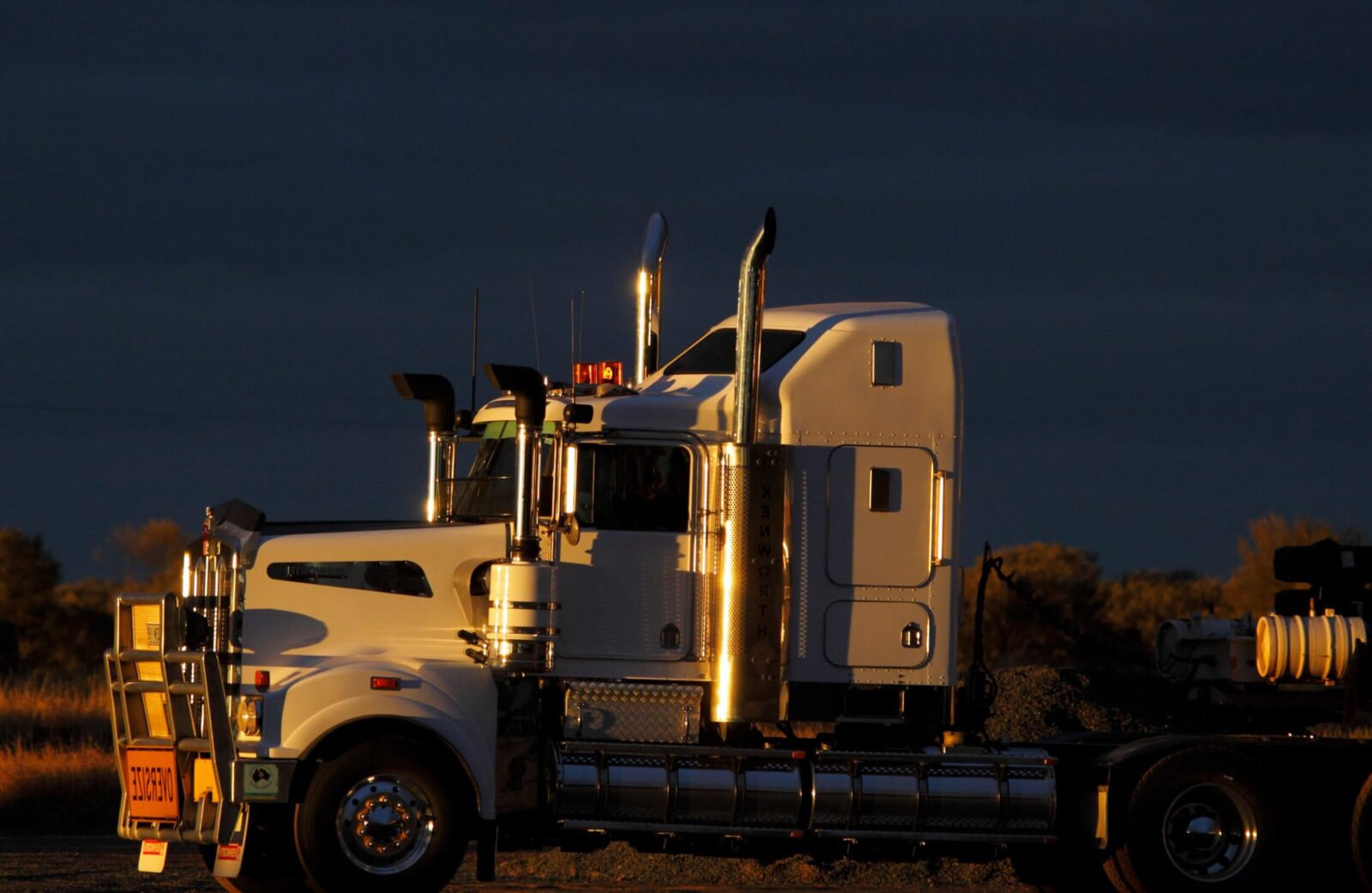

Understanding the Benefits and Functions of ELD in the Freight Industry
Let’s start with the ELD definition in trucking. A handy tool used by commercial motor vehicle (CMV) drivers to automatically keep track of their driving time and Hours of Service (HOS) records is an ELD, or electronic logging device for trucking. But it’s not just about keeping track of hours. What does ELD stand for in trucking? ELDs also record information about the engine, motion, and miles traveled. These gadgets support fleet compliance, inspections, and planning by giving truck drivers and dispatchers real-time updates.
- What does an ELD for trucks do?
- Who needs to use an ELD?
- What are the benefits of ELDs?
- Key features of an ELD
-
FAQ about ELDs
- What information does an ELD record?
- How do I know if an ELD is compliant?
- What is the difference between AOBRD and ELDs?
- How much do ELDs cost?
- Why are ELDs important?
- Does Logity Dispatch have an ELD solution?
ELDs are made up of various components that all function flawlessly together. The truck is connected to a vehicle tracking system first. The package is then completed by a mobile app and fleet management software.
What does an ELD for trucks do?
An ELD is a carrier’s best friend when it comes to accurately recording driving time for HOS. It integrates with the car’s engine and communicates with it automatically to record driving behavior. This contains important details like the location, the miles driven, the location of the engine, and the ignition status.
The telematics device in the ELD transmits the engine and GPS location data to a server to ensure a smooth exchange of information. Immediately after being created, Duty Status logs are pushed to the ELD mobile app so that drivers can view them. They will always have access to the most recent information in this way.
Carriers can easily access electronic logging data from the ELD mobile app on their smartphones or tablets, which is convenient in terms of fingertips. Additionally connected to fleet management software, the mobile app enables fleet and compliance managers to track and assess compliance using ELD reports, maps, and alerts.
Who needs to use an ELD?
A person needs an ELD if they keep a record of their duty status logs for eight or more days out of every thirty. Nevertheless, the Federal Motor Carrier Safety Administration (FMCSA) does provide exemptions in certain circumstances. For instance, drivers of vehicles older than the model year 2000 and drivers who use the record of duty status (RODS) for up to eight days in any 30 days are both exempt. Truckers who tow away vehicles are also exempt as long as the shipment includes the vehicle they are towing. Consulting the FMCSA website is a great idea if you want to know if your fleet is subject to the ELD trucking rule.
What are the benefits of ELDs?
ELD trucking devices offer carriers a number of crucial advantages. Improved driver safety is one of the most important benefits. ELDs aid in reducing truckers fatigue by enforcing stricter adherence to Hours of Service regulations, ultimately improving road safety. Eliminating paper logbooks also speeds up record-keeping and improves accuracy.
Here are some of the top advantages of ELDs for trucks:
- Boost driving safety to save lives
- Reduce the complexity of maintaining Records of Duty Status (RODS)
- Automate the driver’s Recording of Duty Status to increase compliance with the Hours of Service rule.
- Reduce the amount of paperwork that drivers and office personnel must complete Office administration costs time
- Reduce the possibility of mistakes with automated tracking
The extended benefits offered by ELDs that make use of open platform telematics technology also include support for fuel tax (IFTA) and International Registration Plan (IRP) mileage reporting, vehicle inspection reporting, fuel usage monitoring, engine fault reporting for proactive vehicle maintenance, receipt and invoice scanning, and real-time data access that can be used to improve fleet productivity and efficiency as a whole.
Timeline for ELD compliance
Motor carriers who maintain records of duty status (RODS) are required to switch from paper to electronic logging, per a ELD mandate issued by the U.S. Federal Motor Carrier Safety Administration (FMCSA) in 2015.The main objectives of the ELD regulations were to increase traffic safety and make it easier for truck and bus drivers to track their hours of service and maintain records of their current duty status (RODS).
New rules for electronic logging in Canada were also going to be released by the Canadian Transport Ministry, and they would take effect in June 2021.
Key features of an ELD
The FMCSA states that there are three main requirements for electronic logging devices. Electronic logging devices used for trucking, must meet specific technical requirements, have manufacturer certification, and be registered with the FMCSA.
There are typically two formats available for ELD solutions. One is a bundle that contains a device with a mobile app already preinstalled. The second option is called a Bring Your Own Device (BYOD) solution, which allows carriers to use their current hardware as long as it is compatible. If a smartphone or tablet complies with FMCSA technical requirements, is certified and registered, it can be used as a component of the ELD solution.
Here are some characteristics and capabilities of an ELD:
- Synchronization on an internal level with the engine control module
- Automatic time and information recording while driving
- Location history
- Telematic (via wireless or email) or local (via USB 2.0 or Bluetooth) options for electronic data transfer
- preventing tampering
- At the end of each 24-hour period, driver records must be certified.
- Displaying reports to safety officials as needed (on screen or in print)
- user guide
- mute and volume controls for audio
Please see the FMCSA list for a complete list of all required features and capabilities.
FAQ about ELDs
You can find solutions to some of the most frequently asked questions about electronic logging devices and some of the ELD trucking rules:
What information does an ELD record?
A driver can keep track of their duty status and permitted driving distances with the aid of an ELD, avoiding fatigue-related problems. The information that was recorded includes the date, time, location, engine hours, mileage, user authentication, driver identification, vehicle information, and information about the motor carrier.
How do I know if an ELD is compliant?
The compliance of registered devices is not guaranteed by the FMCSA. Manufacturers and suppliers of ELDs certify and register their own ELD products. On their website, the FMCSA keeps a list of self-certified and registered ELDs, but it’s important to note that inclusion on the list does not imply complete compliance. Buyers are advised to perform due diligence to confirm the caliber, dependability, and security of ELD providers. The FMCSA has the authority to strike an ELD from the registered list if it is found to be non-compliant.

What is the difference between AOBRD and ELDs?
Automatic On-Board Recording Device, or AOBRD, is governed by the 1988 AOBRD rule. Similar to ELDs, AOBRDs have integral synchronization and automatically record a driver’s duty status. ELDs, on the other hand, provide more useful features and functionality while still adhering to the ELD rule.
Additional features of ELDs exist that weren’t addressed or mandated by the original AOBRD Rule. A graph grid display of duty status changes, warnings for unassigned driving time and miles, defaulting to the on-duty status when the vehicle has been stopped for longer than five minutes, and synchronization with Universal Coordinated Time (UTC) are some of these features.
How much do ELDs cost?
Electronic logging devices can range in price from a few hundred dollars to several thousand dollars per vehicle. There are several costs associated with purchasing an Electronic logging device solution, including the hardware of the device, professional installation (if necessary), and a monthly software fee. For the best return on your investment, it is crucial to research ELD providers and solutions.
Electronic logging devices may offer carriers a sizable return on investment, depending on the features offered. Cost savings can be achieved by a comprehensive telematics ELD system through increased fleet productivity, fuel efficiency, safety improvements, and compliance advantages.
Why are ELDs important?
The meaning of ELD in trucking can’t be overvalued. ELDs are essential for ensuring regulation adherence and enhancing traffic safety by reducing fatigue-related accidents. They provide the trucking industry with a number of advantages, including time and money savings compared to paper logs, improved record-keeping and inspection processes, and, most importantly, the prevention of accidents and the saving of lives.
The creation of a plan, ensuring that ELD administrators are knowledgeable, and offering driver training are crucial for ensuring a smooth transition to full compliance. These metrics bolster the CSA, fleet safety, and compliance scores.
Does Logity Dispatch have an ELD solution?
Logity Dispatch understands the importance of finding the right ELD solution for your trucking operations. Although Logity Dispatch does not provide an ELD solution directly, its comprehensive dispatch management software can assist you in the process of selecting an ELD solution. With its robust features and integrations, Logity Dispatch can seamlessly integrate with various ELD providers, allowing you to leverage the power of both systems. This integration enables you to efficiently manage dispatching, track loads, and optimize operations while ensuring compliance with electronic logging requirements.
Logity Dispatch’s knowledgeable support team can guide you through the selection process, helping you choose an ELD solution that aligns with your specific needs and requirements. By combining Logity Dispatch’s powerful dispatch management capabilities with a suitable ELD solution, you can enhance productivity, improve compliance, and drive success in your trucking business.





